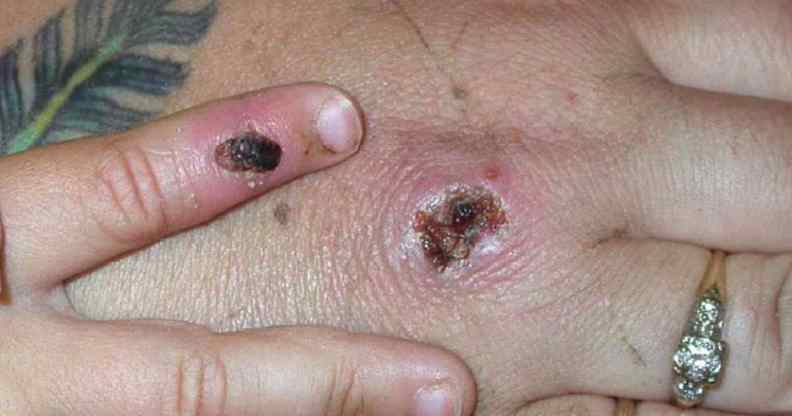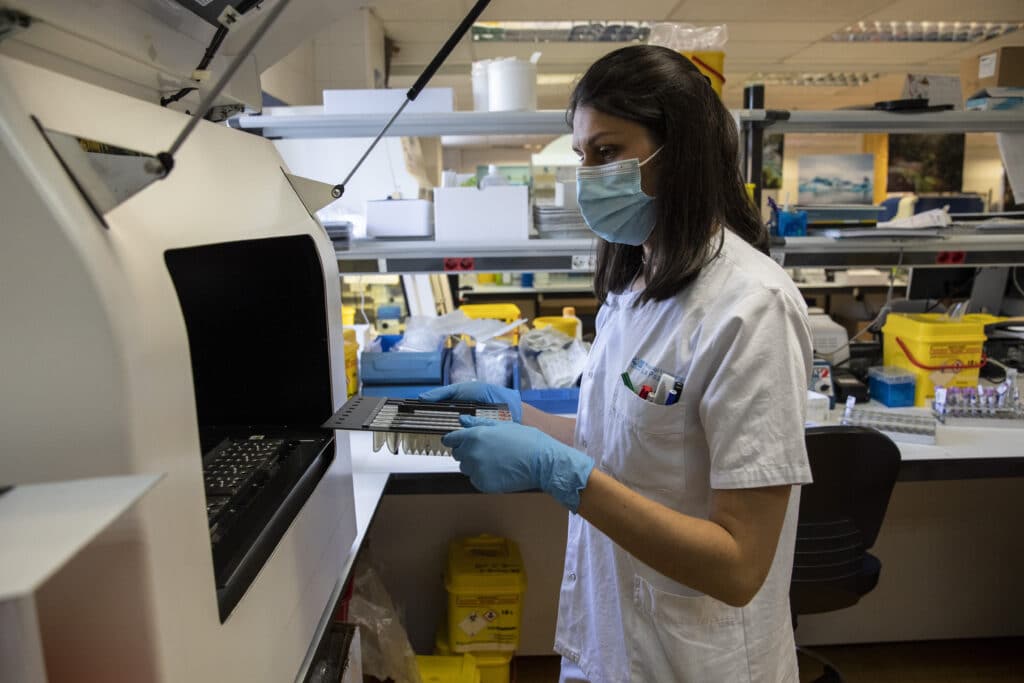Monkeypox: Singapore, South Africa and South Korea record first cases as outbreak spreads

Monkeypox scabs. (CDC/Getty Images)
South Korea, Singapore and South Africa have reported their first cases of monkeypox amid the worldwide outbreak.
Singapore’s first recorded case of monkeypox is a British man who was in the city state between 15 June and 17 June.
He tested positive for the infection on Monday (20 June) after reporting symptoms synonymous with the infection such as skin rashes, headaches, and a fever.
As per CNN, Singapore’s Ministry of Health said: “During this period, he had largely remained in his hotel room except to visit a massage establishment and eat at three food establishments on June 16.”
The man is being treated at the National Centre for Infectious Diseases, and 13 of his close contacts have been identified and are in the process of being tracked.

Monkeypox cases continue to soar around the world. (Credit: Pablo Blazquez Dominguez/Getty Images)
In South Korea, a citizen who had just travelled back from Germany on Wednesday (22 June) reported themselves to the Korea Disease Control and Prevention Agency, after they experienced monkeypox symptoms including fever, fatigue, headache, sore throat and skin lesions.
South Korean health authorities suspect they may not be dealing with just one case, as there is another suspected case involving a foreigner who arrived in the country on Monday (20 June) and was rushed to a hospital in Busan after developing skin lesions, according to CNN.
South Africa also reported its first case of monkeypox on Wednesday. The case involves a 30-year-old man who lives in Gauteng, but reported no travel history. Close contacts are currently being tracked, according to the National Institute for Communicable Diseases.
A case of #monkeypox has been identified in South Africa. The case involves a 30-year-old male residing in the Gauteng province. Monkeypox is rarely fatal. Severe cases may occur in children, pregnant woman and in individuals that are immunocompromised https://t.co/dJ2j2aBGe1 pic.twitter.com/G9XPk0RBgI
— NICD (@nicd_sa) June 23, 2022
According to Reuters more than 40 countries that had previously not been affected by monkeypox have now reported the disease, with currently 3,000 cases worldwide.
At the moment England is the most affected country with 766 cases as of 22 June, according to UK Health Security Agency (UKHSA).
The UKHSA recommended that gay and bisexual men, who are currently at higher risk of contracting monkeypox, be offered a vaccine against it.
Experts have reiterated that monkeypox is not a “gay disease” and is not sexually transmitted, but the majority of the cases have come from men who have sex with men.
Dr Mary Ramsay, head of immunisation at UKHSA, said: “Our extensive contact tracing work has helped to limit the spread of the monkeypox virus, but we are continuing to see a notable proportion of cases in gay, bisexual, and other men who have sex with men.
“By expanding the vaccine offer to those at higher risk, we hope to break chains of transmission and help contain the outbreak.”
The World Health Organization (WHO) is planning to rename monkeypox to cut anti-African stigma and misinformation.
WHO’s director general, Tedros Adhanom Ghebreyesus said WHO was “working with partners and experts from around the world on changing the name of monkeypox virus, its clades and the disease it causes,” according to TIME.
As cases continue to soar, the NHS recommends keeping an eye out for symptoms such as fever, headaches, swollen glands, backaches, skin lesions and fatigue. If a person suspects they may have monkeypox they should isolate and report it to their GP.

